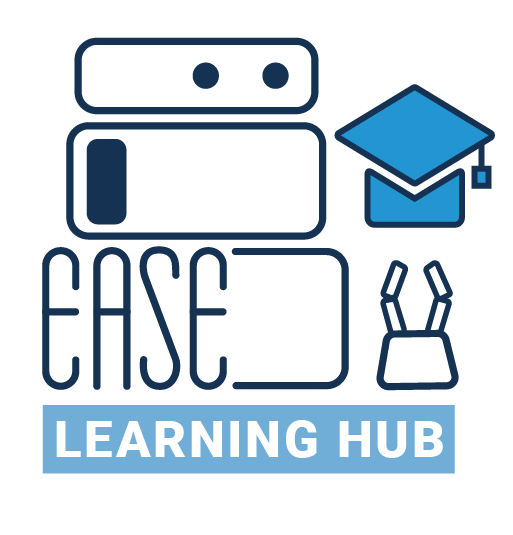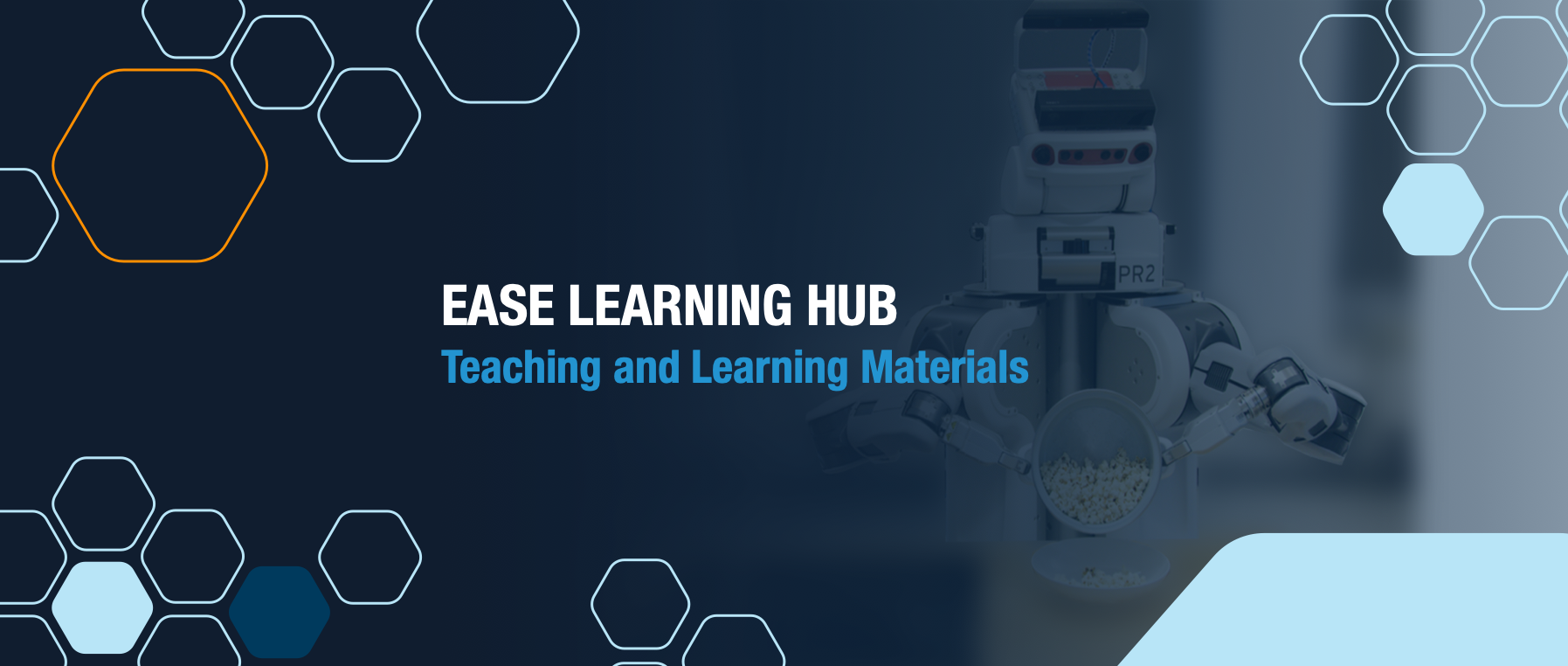Cognition-enabled robotics
Cognition-enabled Robot Manipulation - Welcome to EASE Fall School 2022
Part 1: The first talk will start with a short review of some basics of AI and computer science. Michael Beetz will also present some interesting examples in the world of cognition-enabled manipulation.
On Decisional Abilities for a Cognitive and Interactive Robot
Part 1: In the first part of his captivating lecture, Rachid Alami discusses decisional abilities required for Human-Robot Interaction (HRI) and Human-Robot Collaboration in particular. The challenge is to develop and build cognitive and interactive abilities to allow robots to perform collaborative tasks with humans, not for humans. The first part centers on the introduction to Human-Robot Joint Actions and the problems of combining tasks planning (what to do) with motion planning (how to do it), especially for grasping, and how they can be solved.
Digital Twin Knowledge Bases
Follow Michael Beetz' talk on the exciting topic of digital twin knowledge bases. The term digital twins refers to virtual, AI-based images of physical objects in the real world. It is an emerging technology and plays a crucial role for the Industry 4.0 and the digitization of manufacturing in several domains. In retail, for example, digital twins show an exact digital replica of the store and warehouse and the location of each product. In his comprehensive talk, Michael Beetz focuses on the aspect of knowledge representation.
Knowledge representation and reasoning for robotic agents - Part 2
Part 2: In his follow-up lecture, Michael Beetz gives a short recap of his first talk before further exploring knowledge representation and reasoning for robotic agents. He focuses on one of the main problems of human-scale manipulation tasks for robotic systems, action description, when it comes to the performance of abstract tasks like "pour the water out". From "grasp the pot by the handles" to "tilt the pot around the axis between the handles" to "hold the lid while pouring", every action includes multiple intermediate tasks that have to be described in detail for the robot.
Knowledge representation and reasoning for robotic agents
Part 1: In the opening talk of the first EASE Fall School, Michael Beetz discusses the wide range of topics around cognition-enabled robotics. He explains the challenges and complexity of building and programming a robot that reaches the same level of efficiency in performing everyday tasks than humans do. Listen to his thorough introduction on knowledge representation and reasoning, and logic-based knowledge representation and reasoning in particular, on manipulation intellligence, and on the research approach of the Collaborative Research Center EASE.

